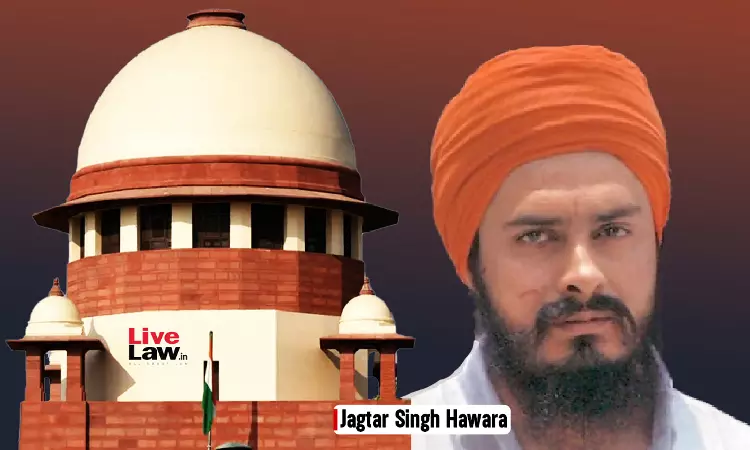 |
|
The Supreme Court of India is currently deliberating a significant legal case involving Jagtar Singh Hawara, a convicted individual in the assassination of former Punjab Chief Minister Beant Singh in 1995. Hawara, currently incarcerated in Tihar Jail, Delhi, has filed a petition seeking transfer to a prison within Punjab. This seemingly straightforward request has evolved into a complex legal battle, highlighting jurisdictional issues and the sensitive political context surrounding the crime. The Court's decision will have implications not only for Hawara but also for the broader legal framework governing prisoner transfers and the handling of high-profile cases with enduring political ramifications.
The pivotal development in the case is the Supreme Court's order mandating the Union Territory of Chandigarh to become a party to the proceedings. This decision stems from the fact that Hawara was originally tried and imprisoned in Budhail Jail, Chandigarh, before his subsequent transfer to Delhi. The inclusion of Chandigarh's administration ensures that all relevant jurisdictions are represented and considered in the decision-making process. The Court's recognition of Chandigarh's pivotal role underscores the intricate web of legal and administrative responsibilities involved in managing prisoners convicted of high-profile crimes. This highlights the importance of transparency and accountability in the legal system, ensuring that all relevant stakeholders have a voice in decisions that impact the lives and rights of those involved.
The arguments presented before the Supreme Court reveal a clash of perspectives and concerns. Hawara's legal team, represented by Senior Advocate Colin Gonsalves, argues that all other co-convicts in the Beant Singh assassination case are housed in Punjab prisons, with Hawara being the sole exception. The argument emphasizes equitable treatment and the practical difficulties faced by Hawara in attending court proceedings and maintaining contact with his family in Punjab. Furthermore, the defense highlights Hawara's good conduct record while incarcerated and the historical context of the crime, framing it as a reaction to significant social and political upheaval in the region. They draw parallels to other high-profile cases, citing instances where considerations of historical context influenced judicial decisions.
Conversely, the Punjab government, represented by its Advocate General, opposes the transfer, citing concerns about law and order and intelligence reports suggesting potential risks associated with Hawara's presence in Punjab. These concerns stem from the sensitive nature of the case and the political implications of Hawara’s potential release into Punjab, highlighting potential risks to security and the stability of the state. This opposition underscores the complexities involved in balancing an individual's rights with broader societal security concerns. The government also points to a previous Delhi High Court decision dismissing a similar request from Hawara in 2018, a precedent which the state seeks to uphold. The ongoing conflict in perspectives necessitates a comprehensive evaluation by the Court, balancing individual rights with public safety and the intricacies of interstate jurisdictional disputes.
The Supreme Court's decision is further complicated by the fact that Hawara's death sentence was commuted to life imprisonment in 2010, and related appeals remain pending. This pending litigation introduces another layer of complexity into the current transfer petition. The Court must carefully consider the implications of any decision on these ongoing appeals, ensuring consistency and fairness within the legal framework. The interconnected nature of these legal proceedings highlights the challenges in resolving multifaceted legal issues, necessitating comprehensive review of all relevant factors before arriving at a just and equitable decision. The meticulous examination of all aspects of the case demonstrates the Court's commitment to due process and the careful consideration required when addressing complex and politically charged cases.
The case of Jagtar Singh Hawara underscores the intricate interplay between legal procedure, political sensitivities, and the challenges in achieving equitable and just outcomes in high-profile cases with a long and complex history. The ongoing legal proceedings highlight the need for thorough review, balancing individual rights with public safety, and addressing the challenges associated with interstate jurisdiction and the handling of sensitive political cases. The Supreme Court’s decision will serve as a significant precedent for future cases involving similar circumstances, shaping legal practices related to prisoner transfers and the management of politically sensitive cases. The Court's decision will set a significant precedent and impact the future handling of such cases within the Indian judicial system.
